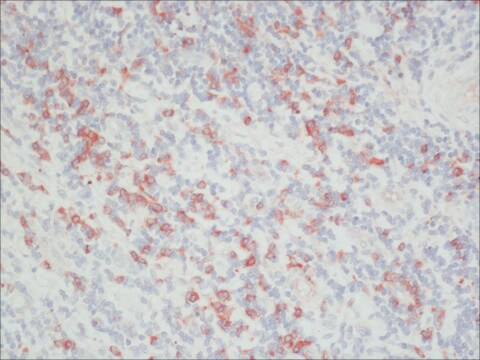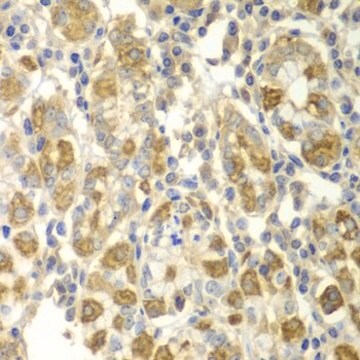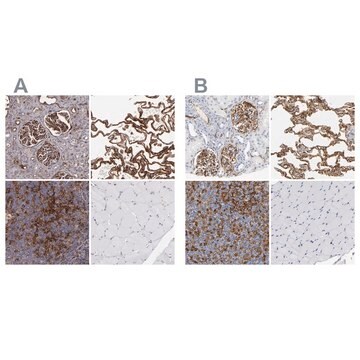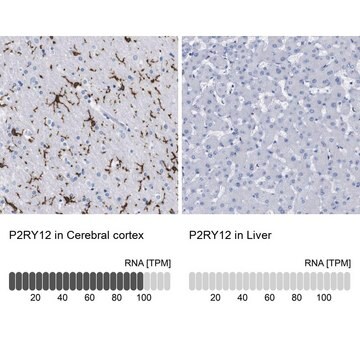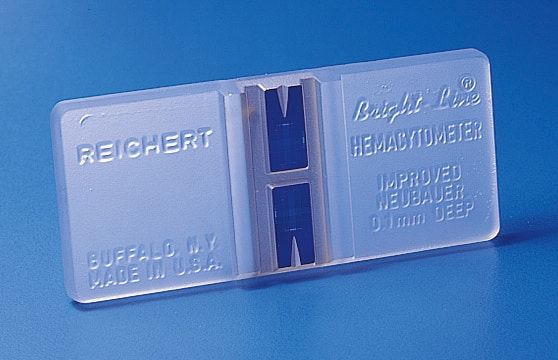AP189P
Donkey Anti-Rat IgG Antibody, HRP conjugate, Species Adsorbed
Chemicon®, from donkey
Sign Into View Organizational & Contract Pricing
All Photos(1)
About This Item
UNSPSC Code:
12352203
eCl@ss:
32160702
NACRES:
NA.46
Recommended Products
biological source
donkey
Quality Level
conjugate
peroxidase conjugate
antibody form
F(ab′)2 fragment of affinity isolated antibody
antibody product type
secondary antibodies
clone
polyclonal
species reactivity
rat
manufacturer/tradename
Chemicon®
technique(s)
ELISA: suitable
western blot: suitable
shipped in
wet ice
target post-translational modification
unmodified
Application
Donkey anti-Rat IgG Antibody, HRP conjugate, Species Adsorbed detects level of Donkey Rat IgG & has been published & validated for use in ELISA & WB.
Research Category
Secondary & Control Antibodies
Secondary & Control Antibodies
Research Sub Category
Secondary Antibodies Adsorbed for Dual Labeling
Secondary Antibodies Adsorbed for Dual Labeling
Legal Information
CHEMICON is a registered trademark of Merck KGaA, Darmstadt, Germany
Disclaimer
Unless otherwise stated in our catalog or other company documentation accompanying the product(s), our products are intended for research use only and are not to be used for any other purpose, which includes but is not limited to, unauthorized commercial uses, in vitro diagnostic uses, ex vivo or in vivo therapeutic uses or any type of consumption or application to humans or animals.
Not finding the right product?
Try our Product Selector Tool.
Storage Class Code
11 - Combustible Solids
WGK
WGK 3
Certificates of Analysis (COA)
Search for Certificates of Analysis (COA) by entering the products Lot/Batch Number. Lot and Batch Numbers can be found on a product’s label following the words ‘Lot’ or ‘Batch’.
Already Own This Product?
Find documentation for the products that you have recently purchased in the Document Library.
Guo-Cai Li et al.
Cancer science, 101(12), 2546-2553 (2010-10-15)
The effects of mesenchymal stem cells (MSC) on the growth and metastasis of human malignancies including hepatocellular carcinoma (HCC) are controversial, and the underlying mechanisms are not yet understood. The aim of this study was to explore the role of
Taifeng Zhou et al.
eLife, 9 (2020-03-19)
Mechanical forces are fundamental regulators of cell behaviors. However, molecular regulation of mechanotransduction remain poorly understood. Here, we identified the mechanosensitive channels Piezo1 and Piezo2 as key force sensors required for bone development and osteoblast differentiation. Loss of Piezo1, or
Our team of scientists has experience in all areas of research including Life Science, Material Science, Chemical Synthesis, Chromatography, Analytical and many others.
Contact Technical Service
